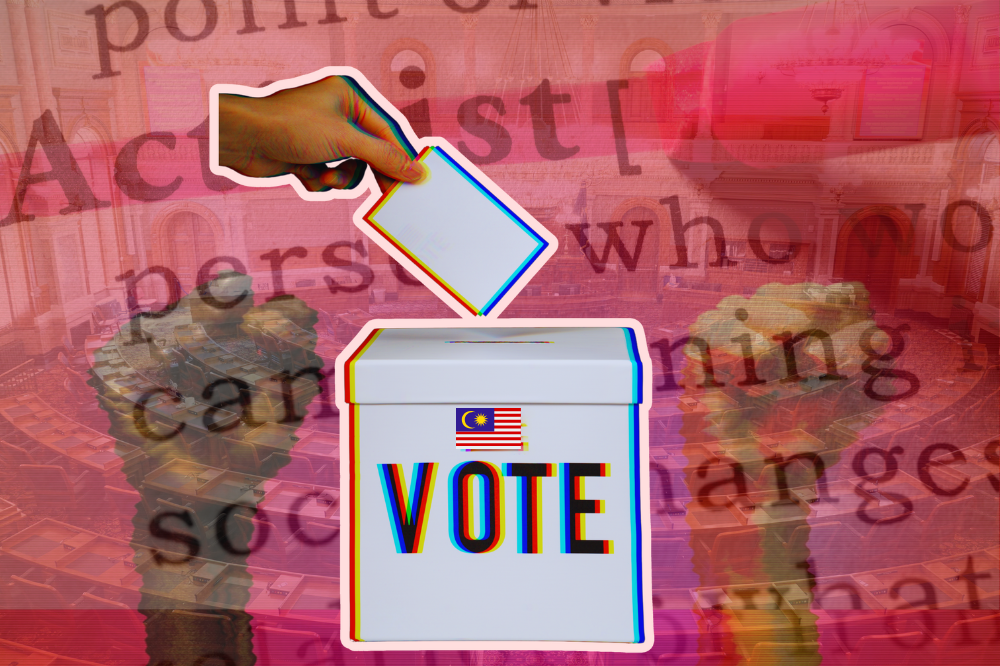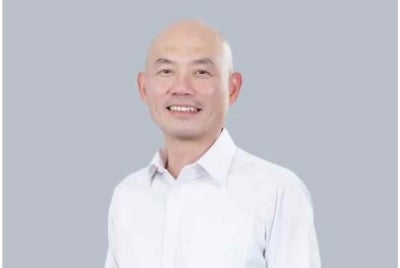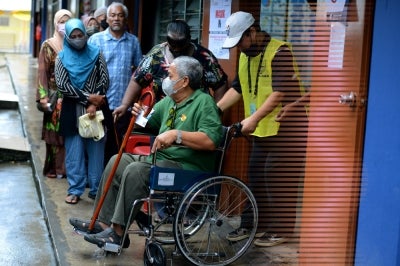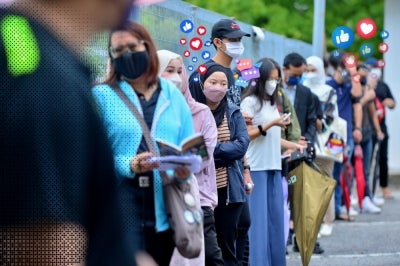Youth's political engagement: Between apathy and activism
Their diverse views, ranging from political activism to complete disengagement, offer a window into how Gen Z perceives and participates in Malaysia's political landscape.
DASHVEENJIT KAUR
Malaysia's Gen Z's political awareness reveals a stark contrast—from complete disengagement to passionate advocacy for change.
This diversity in political consciousness among young Malaysians aged 18-25 offers insights into how the next generation views governance and their role in shaping the nation's future.
In a series of in-depth interviews conducted by Sinar Daily, three young Malaysians shared their perspectives on politics and discussions about economic challenges, social issues and aspirations for the future.
Their diverse views, ranging from political activism to complete disengagement, offer a window into how Gen Z perceives and participates in Malaysia's political landscape.
"Politics? Gen Z, I can see that they are not interested at all.
"I just feel like they are not brave enough to step up and talk when they want to," said Sarah Andrejen, a young entrepreneur and political party member who has been involved in politics since she was 18.
Sarah's observation that politics needs to move beyond "making it like a lawyer thing" to something more serious and accessible suggested a desire for more direct, transparent political discourse.
This observation contrasts with Ain Husniza's perspective, who argued that "not participating in politics is a bit of a privilege because politics encapsulates almost everything and the way that we do things in this country." As a student and advocate for women's and children's rights, Ain emphasised how politics affects everyday life, from grocery prices to social interactions.
She added that the introduction of the Undi18 law has brought political diversity into sharper focus.
"With Undi18, the rate of people coming, attending and voting is very high," she said.
Yet, the interviews revealed that Gen Z's political engagement often correlates with their exposure to issues affecting their immediate lives.
"They might care about politics, but they wouldn't necessarily care for it in the way you expect," said Ain, who cautioned her generation against assuming uniform political alignment.
Ain expressed her admiration for those who actively include youth voices in decision-making, citing Natural Resources and Environmental Sustainability Minister Nik Nazmi Nik Ahmad's initiative to consult young people on climate change policies.
"We're going to be the next generation that experiences climate change," she explained, emphasising the importance of youth participation in policy decisions.
The interviews revealed that Gen Z's political interests often centre around specific issues rather than traditional party politics.
Education reform, economic opportunities, gender equality and climate change dominate their concerns.
As Ain said, "We need period leave. We need maternity leave because it will negatively affect our society when we don't consider that." Sarah, who comes from a B40 background, channelled her political involvement towards advocating for free education for all B40 students, especially Indian girls who are often underrepresented.
While others are advocating to get their voices heard, Adam Zulaini, a 21-year-old fashion design student, said he had no interest in politics and admitted to having very limited political awareness, struggling to identify the country's deputy prime minister or major political parties.
When discussing his participation in the last election, Adam said, "I did not vote... I fell sick," highlighting the disconnect some young Malaysians feel from the political process.
He also expressed enthusiasm about the idea of more politicians being active on social media, like Muar Member of Parliament Syed Saddiq Abdul Rahman, suggesting that traditional political outreach may need to evolve to effectively engage Gen Z.
"Since Covid happened, he [Syed Saddiq] has always been popping up on my FYP (For You Page) on TikTok and Instagram, and he is the one who shed some light on politics (for me)." Though Adam's interest eventually waned, this digital exposure provided his first meaningful connection to political discourse.
In short, the effectiveness of social media in political engagement has created new expectations for political communication.
This generational shift in political engagement reflects a broader change in how young Malaysians view authority and participation.
What emerged from these conversations was not a politically apathetic generation but one that engages with politics on its terms.
While some remain disconnected from traditional political structures, others are deeply invested in creating systemic change through conventional and unconventional channels.
As Malaysia continues to evolve, the challenge lies in encouraging political participation among Gen Z and adapting political institutions and communication strategies to engage with this diverse generation effectively.
As Ain powerfully said, "We have new boundaries. We understand what our rights are. We understand what we deserve and when we voice out about something, it shouldn't be taken as a complaint." This transformation in political engagement, driven by social media, issue-based activism and a desire for tangible change, suggests that while not all Gen Z Malaysians may be politically active in traditional ways, their collective impact on the country's political landscape will likely be significant and lasting.
Download Sinar Daily application.Click Here!














